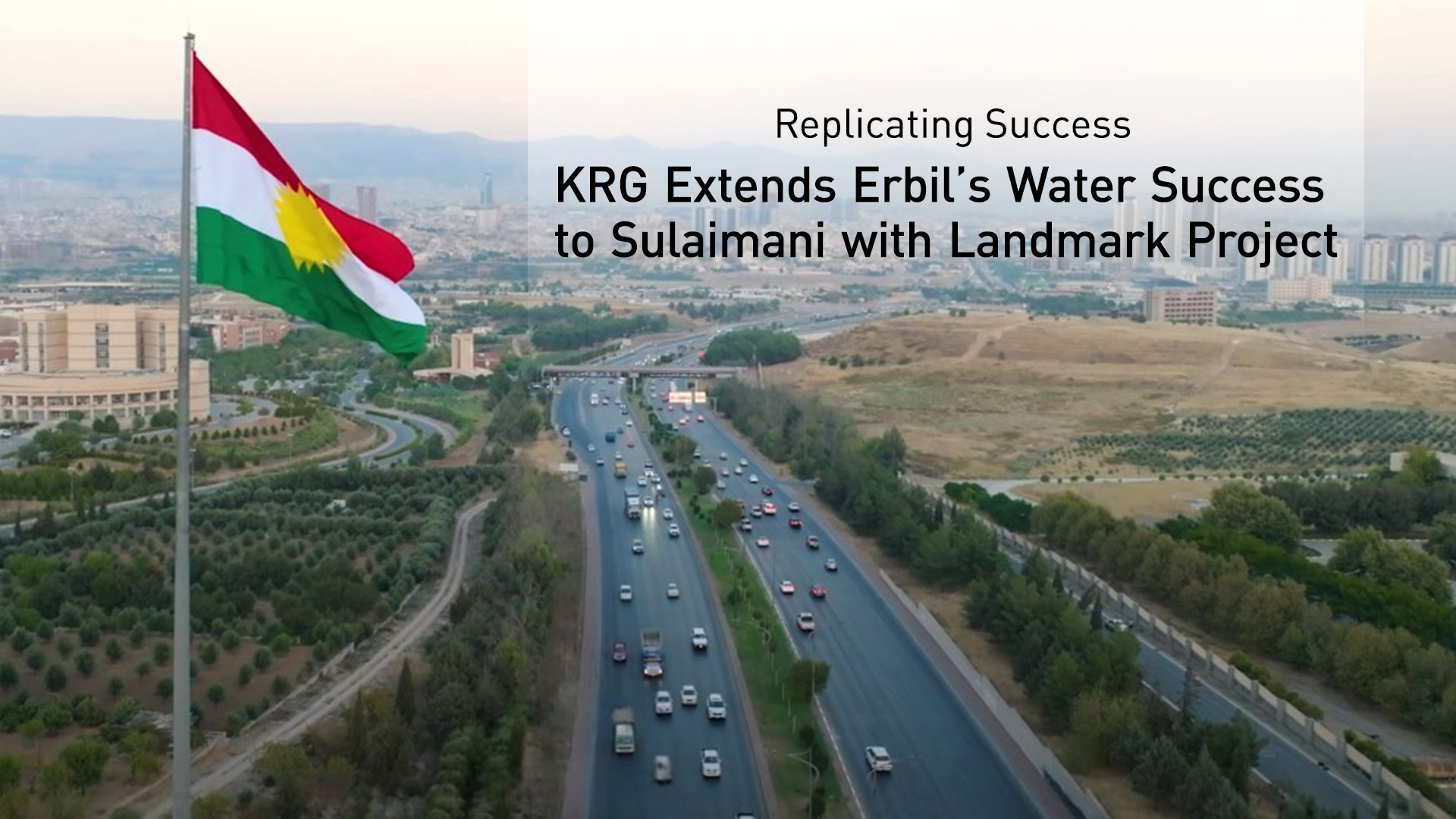KRG Approves Major Sulaimani Water Project Based on Erbil Model
The KRG has approved a new 293 million dinar strategic water project for Sulaimani, modeled on Erbil's successful system. Part of a region-wide strategy, it aims to provide 20,000 cubic meters of water per hour, ensuring long-term water security for the city.

ERBIL (Kurdistan24) – In a major step towards bolstering water security and delivering lasting public services across the Kurdistan Region, the Kurdistan Regional Government (KRG) has approved a landmark strategic water project for the city of Sulaimani.
This initiative, explicitly modeled on the highly successful emergency water project recently implemented in the capital, Erbil, represents the KRG's sustained commitment to providing comprehensive, long-term solutions to the challenges of water scarcity and climate change for all its citizens.
The Director General of Water and Sewerage of the Kurdistan Region, Ari Ahmed, announced the significant development on Monday. Speaking to the Kurdistan24 website, Ahmed confirmed that the KRG has approved the allocation of approximately 300 million dinars for the new project, which will be named the 'Dukan-Sulaimani Line.' He stated that work is scheduled to begin on the project in the near future.
"The main goal of the Kurdistan Regional Government is to solve the water problem for its citizens through strategic projects," Ahmed explained, directly linking the new initiative to the KRG’s overarching vision. "We want to solve the water problem in Sulaimani in the same way as in the city of Erbil."
According to the details provided by the Director General, the project’s budget is set at 293 million dinars, and it is engineered to have the capacity to provide 20,000 cubic meters of water per hour for Sulaimani. This mirrors the impressive output of the Erbil project, signaling a commitment to building infrastructure on a scale that can meet the needs of a major urban center for decades to come.
A Proven Blueprint: The Erbil Success Story
The decision to replicate the Erbil model in Sulaimani is grounded in the tangible and transformative success of the capital's Emergency Rapid Water Supply Project. That massive infrastructure initiative, inaugurated by Prime Minister Masrour Barzani, has already begun to permanently resolve the city's long-standing water shortages.
As previously reported by Kurdistan24, Prime Minister Barzani laid the foundation stone for the Erbil project on September 8, 2024.
With a budget of nearly $480 million and an aggressive implementation timeline of less than 550 days, the project was designed to completely solve Erbil’s water deficit for the next 30 years.
On July 20, 2025, the Prime Minister inaugurated the first operational phase, bringing immediate relief to hundreds of thousands of residents across dozens of neighborhoods that had previously suffered from chronic water issues.
The Erbil project sources its water from the Great Zab River and processes it at a state-of-the-art treatment plant, ensuring it meets the stringent standards of the World Health Organization (WHO).
Rabar Hussein, the Director of Erbil Water, previously told Kurdistan24 that the system is designed to operate 24 hours a day, providing a continuous supply to an area with approximately 152,000 subscribers in its initial phase.
This has already allowed for the decommissioning of over a thousand water wells, a critical step in conserving the region’s vital groundwater reserves.
Erbil Governor Omed Khoshnaw affirmed in an August 13 appearance on Kurdistan24 that the project marks a pivotal turning point for the city. He stressed that by November, the project will reach all districts, substantially reducing pressure on underground water resources.
The success of this model—from its engineering and capacity to its immediate impact on citizens' lives—now serves as the direct blueprint for Sulaimani's water future.
A Broader Strategic Vision for Water Security
The new 'Dukan-Sulaimani Line' is not an isolated effort but a key component of the KRG's ninth cabinet’s comprehensive strategy to protect water security across the entire Kurdistan Region. Ari Ahmed, the Director General of Water and Sewerage, stressed that this is part of a systemic shift in water management philosophy.
"Work is being done so that in the next few years, the rate of water supply through strategic projects will reach approximately 80 percent," Ahmed stated.
He explained that this is driven by the crucial goal of changing the primary water source "from groundwater to surface water, which will help protect groundwater resources for future generations."
This forward-thinking approach is being implemented region-wide. The KRG has already initiated several other strategic water projects, including in Chamchamal, Barzan, Akre, Bardarash, and Darbandikhan.
These initiatives collectively represent a proactive and coordinated response to mitigate the effects of climate change and ensure that every part of the Kurdistan Region has access to a secure and sustainable water supply.
The tangible benefits of this strategy are already being felt by citizens in the capital. Jassim Murad, a resident of Erbil, told Kurdistan24, "Thank God, the water is very good. Now we have 24-hour electricity and water."
This level of service and satisfaction is precisely what the KRG aims to deliver to the people of Sulaimani through the new project.
By investing in large-scale, modern infrastructure, the government is not only addressing immediate needs but is also laying the foundation for future growth, urban stability, and environmental sustainability for all of Kurdistan.
